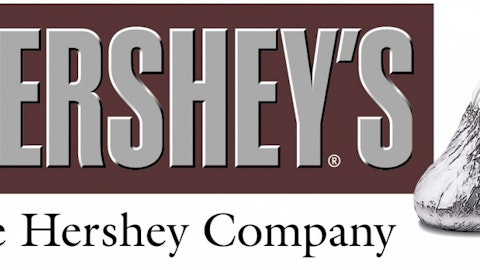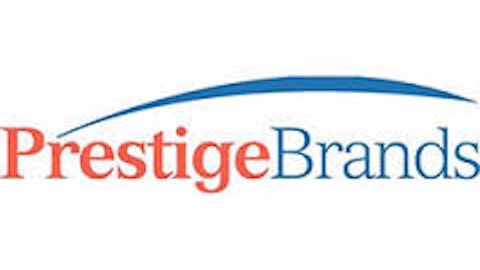The cleaning and disinfectants industry is led by well-established players with strong market-share positions in each category. However, intense competition from peers on the basis of pricing, new product introductions and promotional activities is becoming a threat and could put a cap on profits. The failure to provide high-quality differentiated products at competitive prices damages the companies’ market share and consequently top-line and bottom-line performance.
Strong fundamentals remain despite a weak quarter

The company’s weak results for the third quarter were driven by unfavorable weather conditions and currency headwinds. Earnings per share were $1 and sales went up 1% year over year, reaching $1.41 billion with volumes remaining flat. Due to these results, management has lowered its forecast for sales growth to 3%-4%.
Nonetheless, The Clorox Company (NYSE:CLX) fundamentals remain strong supported by its solid market share and modest growth. Its strategy of penetrating mid-sized markets – like the Middle East and other Asian countries, instead of BRICs – gives the company great growth potential. Rising household incomes and healthy population sizes, plus less competition, works great for the firm.
The Clorox Company (NYSE:CLX)’s brand portfolio is more diversified than its peers and will allow it to sustain itself in the current challenging environment. With proper investments in innovation and marketing, and leveraging on distribution, I believe the company is set for long-term growth.
Through acquisitions, The Clorox Company (NYSE:CLX) is expanding its infection-control products for the healthcare industry. Buying Aplicare and HealthLink moves the company in that direction, providing expertise to reinforce R&D and sales capabilities.
However, the company’s long-term debt of $1.57 billion and leveraged balance sheet remain a concern. At the end of fiscal 2012, the ratio of debt-to-capitalization was over 109%. A high debt affects the company’s flexibility to expand its operations.
Looking for better margins
Church & Dwight Co., Inc. (NYSE:CHD) produces and sells a range of household, personal care and specialty products.
The company’s first-quarter results show a 2% modest growth in sales with a 2.4% increase in volumes, which was offset by lower pricing and an unfavorable mix. Operating margin expanded to 21.7% thanks to efficiency initiatives and better cost environment.
Church & Dwight Co., Inc. (NYSE:CHD)’s initiatives to lower costs and invest in product innovation and marketing support have helped to improve sales and profitability. Arm & Hammer, the company’s core brand, has grown its net sales 10% annually over the past several years, making $1 billion in annual sales. Innovation, marketing and product expansion pay off for the firm.
The recent acquisition of the leading gummy vitamin firm Avid Health shows the company’s intention to generate more higher-margin business. For the past several quarters, the personal care business has lagged the performance of the lower-margin household business. I support the company’s decision; personal care products now account for more than 40% of sales.
Unfortunately, Church & Dwight Co., Inc. (NYSE:CHD) lacks the scale and financial muscle to battle competitors like Procter & Gamble in certain categories such as laundry detergents. The company’s recent success does not seem very sustainable, given the impending challenges from competitors to regain market share.


